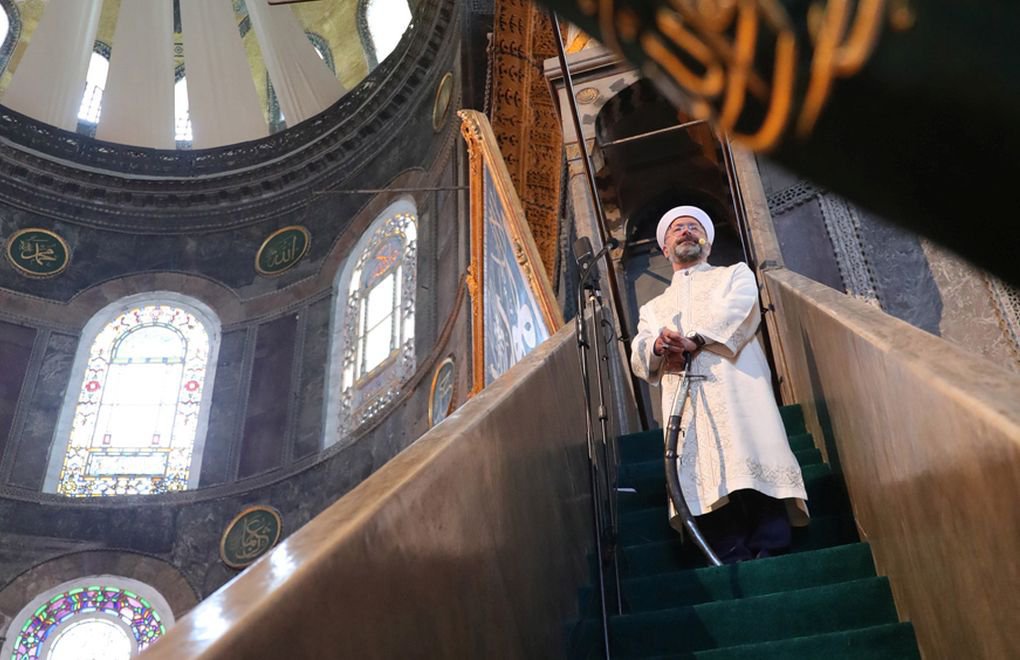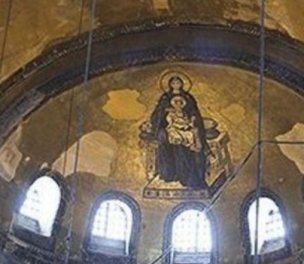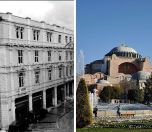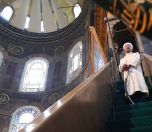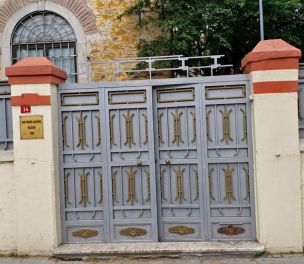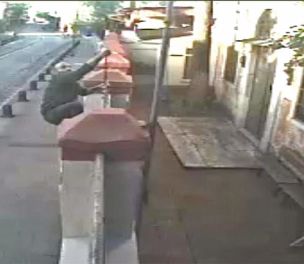* Photo: AA - Archive
Click to read the article in Turkish
The US Commission on International Religious Freedom (USCIRF) has released its annual report on religious freedom.
"In 2020, religious freedom conditions in Turkey continued to follow a troubling trajectory," the report has commented on Turkey.
Putting an emphasis on the conversion of Hagia Sophia from a museum into a mosque, the report has noted:
"In July, Turkish President Recep Tayyip Erdoğan issued a decree converting back into a mosque the famous Hagia Sophia, a former church that had been serving as a museum, in a move that many denounced as divisive and hostile to Turkey's religious minorities.
"While the government took similar steps to reopen as a mosque another former church, the Chora Museum, it reportedly paused those efforts."
In addition to some key findings about the state of religious freedom in Turkey and recommendations to the US government, the report also shares findings about Afghanistan, Azerbaijan, Cuba, Egypt, Indonesia, Iraq, Kazakhstan, Malesia, Nicaragua and Uzbekistan.
Foundations, Halki Seminary, Alevis
The report has shared the following findings about Turkey:
"The government furthermore made little to no effort to address many longstanding religious freedom issues and it ignored the continued targeting and vandalization of religious minority properties throughout the country.
"Despite repeated requests by religious minority communities for permission to hold board member elections for non-Muslim foundations, the government did not permit those elections during the year.
"Similarly, the government disregarded calls for the reopening of the Greek Orthodox Halki Seminary and continued to deny legal personality to all religious communities.
"Members of the ruling party and its coalition partner rejected efforts to recognize Alevi gathering houses (cemevleri) as places of worship, and the government declined to resolve other religious freedom concerns for Alevis and other communities, such as their objection to compulsory religious courses and other educational policies.
"Although officials made a point to meet with some religious minority community leaders, the government appeared to take no subsequent action following that meeting to address those communities' concerns.
Civil society, Aho Bileçen, Chaldean couple
"In December, Turkey's parliament passed a law that human rights groups warned would increase governmental control over civil society, including religious groups, by subjecting them to intensified oversight and new limitations on online fundraising. Many religious minorities continued to feel threatened in connection with incidents perpetrated by nonstate actors or due to direct pressure from the state.
"Alevi, Armenian, and Protestant communities and organizations reported receiving death threats, whereas Jews described an increase in antisemitism largely linked to the COVID-19 pandemic. Assyrians remained deeply disturbed by the detention and trial of Syriac Orthodox priest Sefer Bileçen (aka Father Aho) for allegedly providing food and water to Kurdistan Workers' Party (PKK) members, and by the apparent kidnapping of an elderly Chaldean couple—one of whom was later found dead.
LGBTI+s, attacks on places of worship
"The Turkish government continued to expel or bar the entry into the country of foreign Protestants for posing a purported 'national security threat.' Throughout the year, authorities brought politically motivated charges of blasphemy against individuals and groups, while others in official positions utilized rhetoric characterized as hate speech that denigrated nonreligious individuals and members of the lesbian, gay, bisexual, transgender, and intersex (LGBTI) community.
"Religious sites—including places of worship and cemeteries—were subject to vandalism, damage, and, in some cases, destruction, which the government regularly fails to prevent or punish.
"In January, unknown individuals broke into the Pir Sultan cemevi in Istanbul and graffitied the interior with threatening messages.
"In May, an individual attempted to set fire to an Armenian church for 'bringing the coronavirus,' and that same month, another person scaled the gate of another Armenian church and tore down its cross.
"In other instances, unknown actors destroyed a Yazidi cemetery in Mardin and damaged a Catholic cemetery in Trabzon. Local officials in Bursa demolished a Greek Orthodox church after many years of neglect."
Recommendations to the US Government
The report has also made some recommendations to the US government within the context of the above findings, including "raising in all meetings with Turkish government officials and press at the highest levels for the reopening of the Greek Orthodox Halki Seminary and for full compliance with European Court of Human Rights rulings on freedom of religion or belief."
Click here for the full report
(AS/SD)




